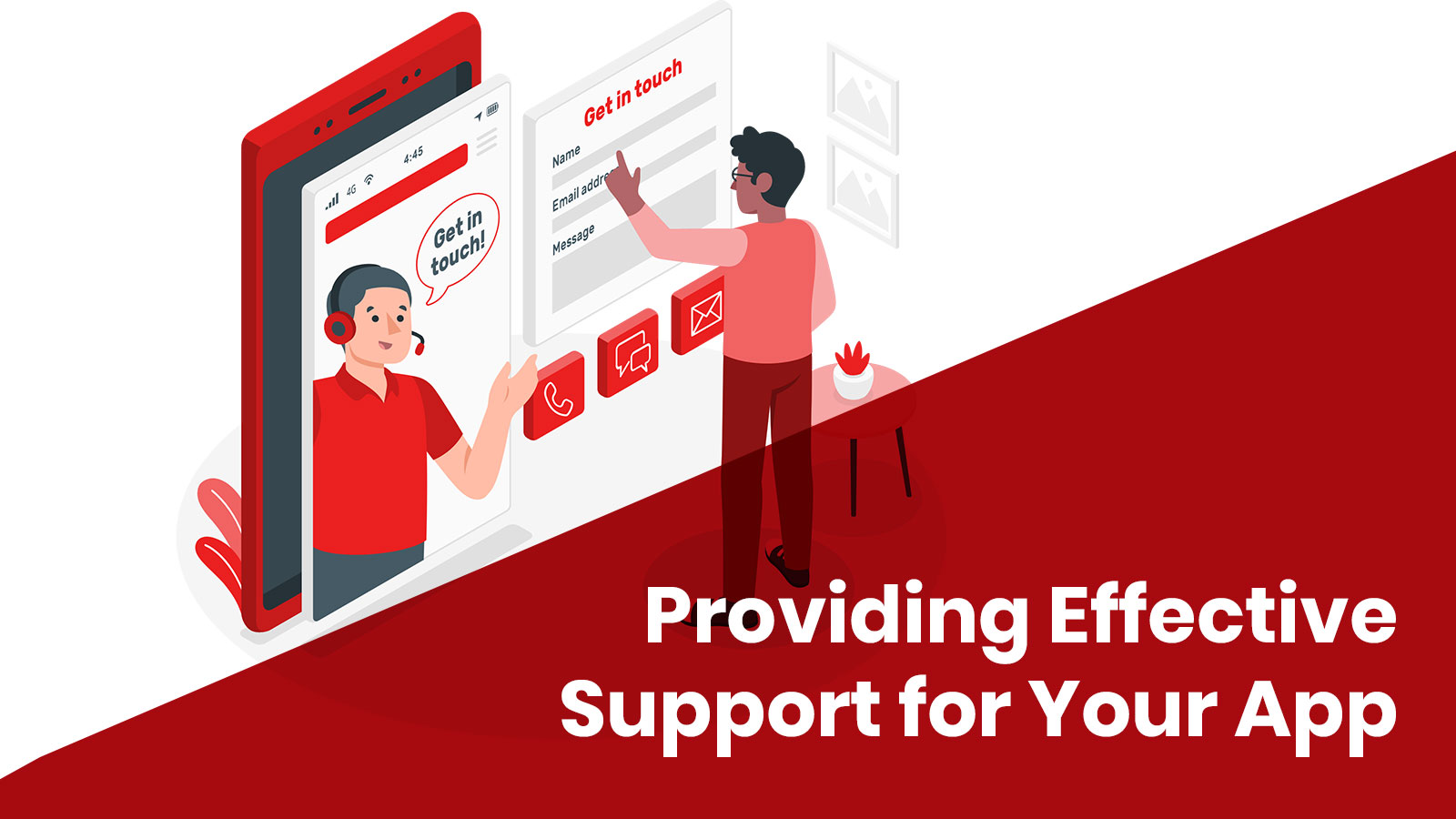Introduction
In today’s digital world, apps are indispensable tools. They have become part of our daily lives which is why ensuring a seamless user experience is paramount. An app is only as good as the support it provides.
In this blog post, we will look into the crucial aspects of providing effective support for your app.
The Importance of Effective Support
Before delving into the strategies for effective support, let’s understand why it matters. According to recent studies, over 50% of users uninstall an app after encountering a single problem. Moreover, 92% of users believe that customer reviews are more influential than any other form of marketing. These statistics show the critical role that customer support plays in retaining users and fostering a positive reputation for your app.
Understanding Your Users
Effective support begins with understanding your users. A diverse user base brings with it different levels of technical expertise and expectations. Conducting user surveys and gathering feedback through various channels can provide insights into user preferences, pain points, and expectations.
Create User-Friendly Documentation
Create user-friendly, easily navigable documentation that addresses common issues, provides step-by-step guides, and includes FAQs. Visual aids, such as screenshots and videos, can enhance the clarity of your documentation, catering to users with different learning preferences.
Implementing a Robust Ticketing System
For efficient customer support, use a system that categorizes and prioritizes tickets based on urgency and severity. This ensures that critical issues are addressed quickly, fostering a sense of reliability and responsiveness.
24/7 Support Availability
In our interconnected world, users expect round-the-clock support. Implementing a 24/7 support system, whether through chat, email, or phone, is crucial for addressing issues promptly and maintaining user satisfaction. Research indicates that 75% of users believe it takes too long to reach a live agent. Therefore, reducing response times is key to delivering exceptional support.
Proactive Communication
Don’t wait for users to reach out with problems. Implement farsighted communication by sending updates about new features, providing tips for using the app more efficiently, and addressing potential issues before they become major problems. Proactive communication not only showcases your commitment to user satisfaction but also helps in building a stronger connection with your users.
Personalized Support
Every user is unique, and their issues may vary. Personalizing support by addressing users by name, acknowledging their specific concerns, and tailoring solutions to their needs can significantly enhance the customer experience.
Gathering and Implementing Feedback
Feedback is crucial for improvement. Actively seek feedback from users through surveys, reviews, and social media. Analyze the feedback to identify repeated issues and areas for enhancement. Regularly updating your app based on user feedback not only improves its functionality but also demonstrates a commitment to user satisfaction.
Conclusion
Today’s world is highly competitive and to stand out from the crowd, providing effective support is absolutely necessary. By understanding your users, providing user-friendly documentation, implementing a robust ticketing system, offering 24/7 support, engaging in proactive communication, delivering personalized support, and actively gathering and implementing feedback, your app can create a loyal user base. Remember, in the digital age, it’s not just about the app itself but the support system that surrounds it. Prioritize user satisfaction, and success will follow.
Frequently Asked Questions (FAQs)
Why is effective support crucial for the success of my app?
Effective support is essential because it directly impacts user satisfaction and retention. Users who receive prompt and helpful support are more likely to continue using your app and recommend it to others. In fact, according to a survey conducted by HubSpot, 93% of customers are likely to make repeat purchases with companies that offer excellent customer service.
What channels should I use to provide support for my app?
Utilize a multi-channel approach to cater to diverse user preferences. Common channels include in-app chat support, email, and a dedicated support portal.
How quickly should I respond to user queries?
Aim for a swift response time. According to a report by SuperOffice, 62% of customers expect a response to their customer service inquiries within 30 minutes. Quick responses demonstrate your commitment to customer satisfaction.
Should I invest in AI-powered chatbots for support?
Yes, integrating AI-powered chatbots can significantly enhance your support system. They can handle routine queries, provide instant responses, and free up your support team to focus on more complex issues.
How can I gather feedback from users to improve support?
Implement feedback mechanisms within your app, such as surveys or feedback forms. Additionally, leverage user reviews on app stores and social media. According to a BrightLocal survey, 87% of consumers read online reviews for local businesses, emphasizing the importance of user feedback.
What role does self-help documentation play in-app support?
Self-help documentation is crucial in empowering users to solve common issues independently. Create a comprehensive knowledge base with FAQs, tutorials, and troubleshooting guides. Research indicates that 70% of users prefer to find answers to their questions on their own through self-service options.
How can I handle negative reviews and feedback effectively?
Respond to negative reviews promptly and professionally. Acknowledge the user’s concerns, express empathy, and offer solutions. According to a study by Harvard Business Review, customers whose complaints are resolved are more loyal than customers who never experienced a problem.
Is it necessary to provide support 24/7?
While 24/7 support is ideal, it may not be possible for all businesses. Assess your user base and their locations to determine peak support hours. However, it’s crucial to set clear expectations regarding your support hours and response times.
How can I ensure consistency in support across different channels?
Implement a unified system that centralizes customer interactions. Use customer relationship management (CRM) tools to track and manage support inquiries. This ensures a consistent and seamless experience for users, regardless of the support channel they choose.
What metrics should I track to measure the effectiveness of my support system?
Key performance indicators (KPIs) for app support include response time, resolution time, customer satisfaction scores (CSAT), and Net Promoter Score (NPS). Regularly analyze these metrics to identify areas for improvement and gauge the overall health of your support system.








